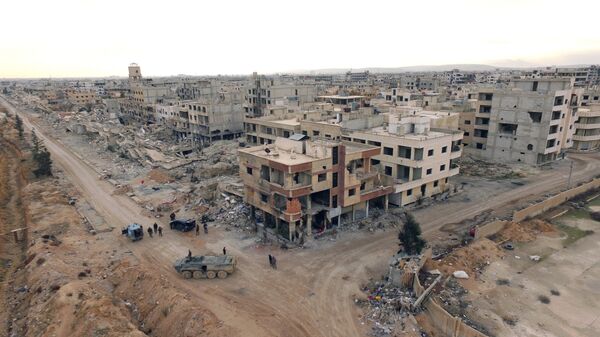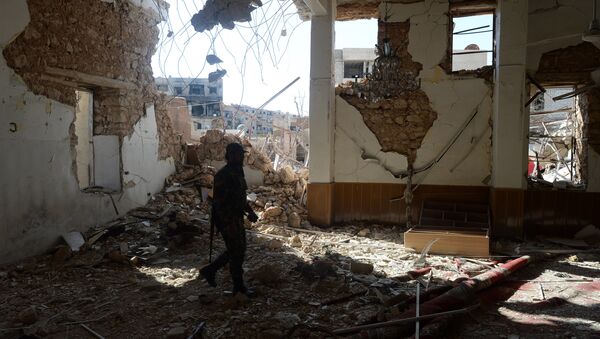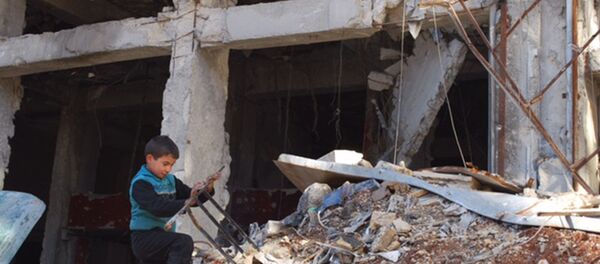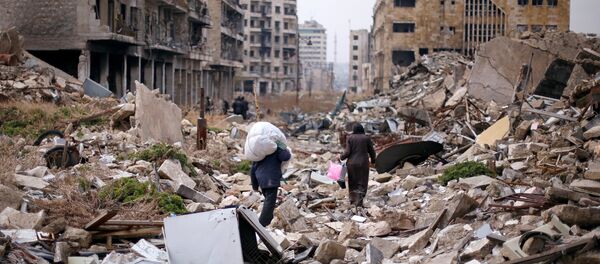One of Syria's oldest cities, Darayya was considered affluent, due to its developed industrial base. Today most of the urban area has been turned into piles of rubble and debris.
Reporters see a child's toy, a teddy bear, with strange wires coming out of it. Apparently the jihadists left behind hundreds of home-made mines and booby traps. Now, authorities say, the main task has been to demine homes, buildings, utilities infrastructure and other facilities.

Speaking to the Russian journalists, Omran Haysan, chief of the Syrian Higher National Committee's operations group, explained the city's strategic importance: "This city was a key position for [the militants'] offensive against Damascus, thanks to its favorable geographic position. Foreign-backed militants turned it into a terrorist enclave, using all weapons available to them. From the start, the government and army sought reconciliation. However, the militants rejected any political and diplomatic efforts to resolve the crisis."
Equal Opportunity Destruction: Churches & Mosques Heavily Damaged
Militants had fortified the city, digging underground tunnels, organizing strongholds, and setting up heavy equipment in fortified positions.
In the heart of Darayya is the Church of St. Paul; according to Christian legend, the ancient location was the place where Paul the Apostle met God on the 'road to Damascus' and embraced Christianity between 33 and 36 AD.
Darayya, suburb of Damascus.
Speaking to the reporters, an army lieutenant colonel named Hassan explained: "The militants used it for its own purposes, dug a tunnel near it to store weapons, medicine and food. They looted the church's relics." Near the church the jihadis created a small farm, using icons torn from its walls to make a makeshift fence.
Just 30 meters from the Church of St. Paul is a mosque, which insurgents also fortified, resulting in severe damage during fighting. Large holes from mortar shells are seen punched through the religious site's dome.
"About 3,000 militants and their families laid down their arms and returned to civilian life," Basu said. "They have been granted amnesty under the relevant presidential law. Some 4,000 more have left the area to continue on fighting, most of them foreigners," the general added.
Darayya is now faced with what seems like an impossible challenge of restoration. The city has no electricity, no centralized water supply. The streets are littered with rubble and debris. Its residents are temporarily housed in camps for internally displaced persons. The settlement remains guarded by elements of the 4th Armored Division of the Syrian Army.




